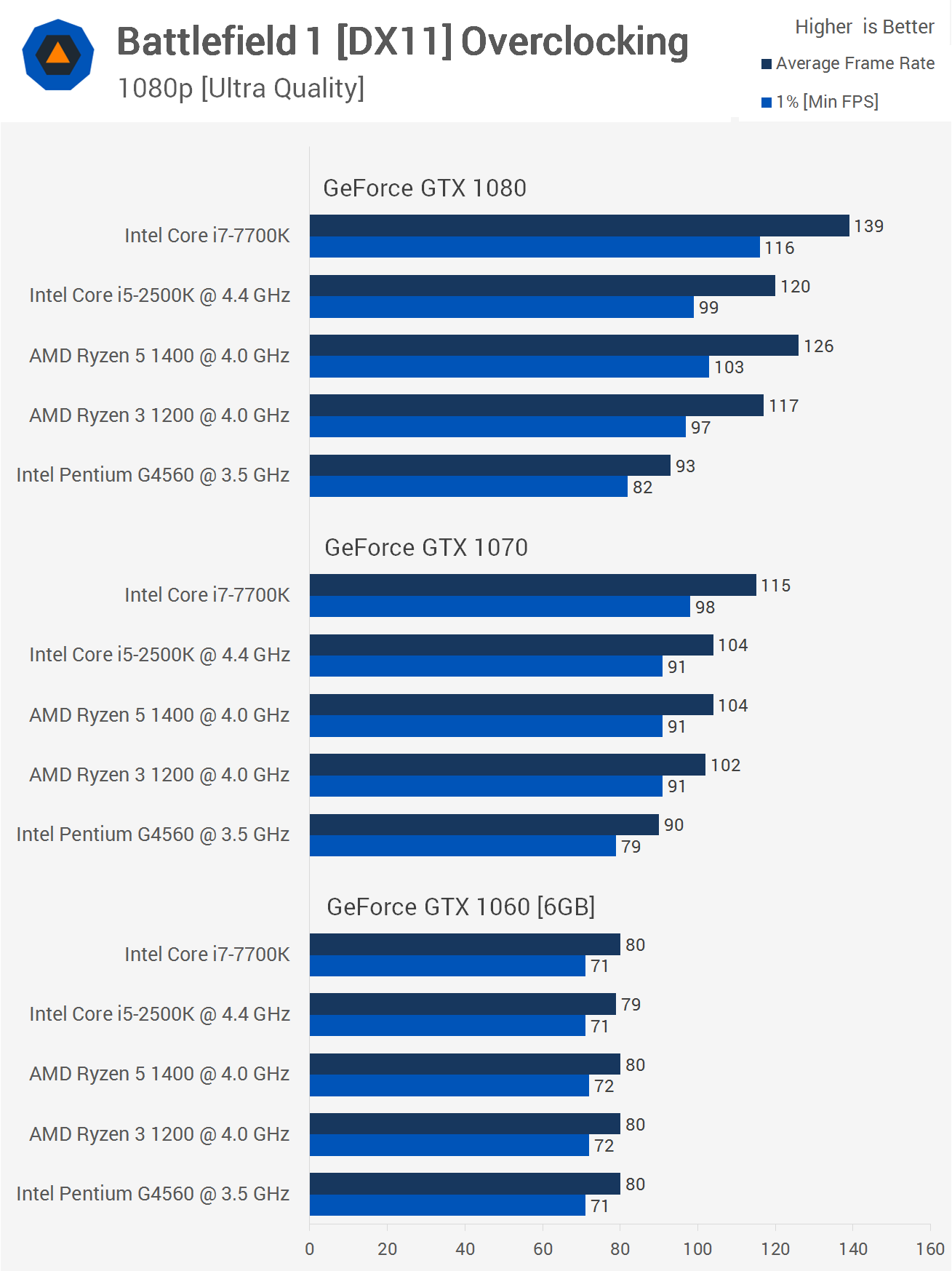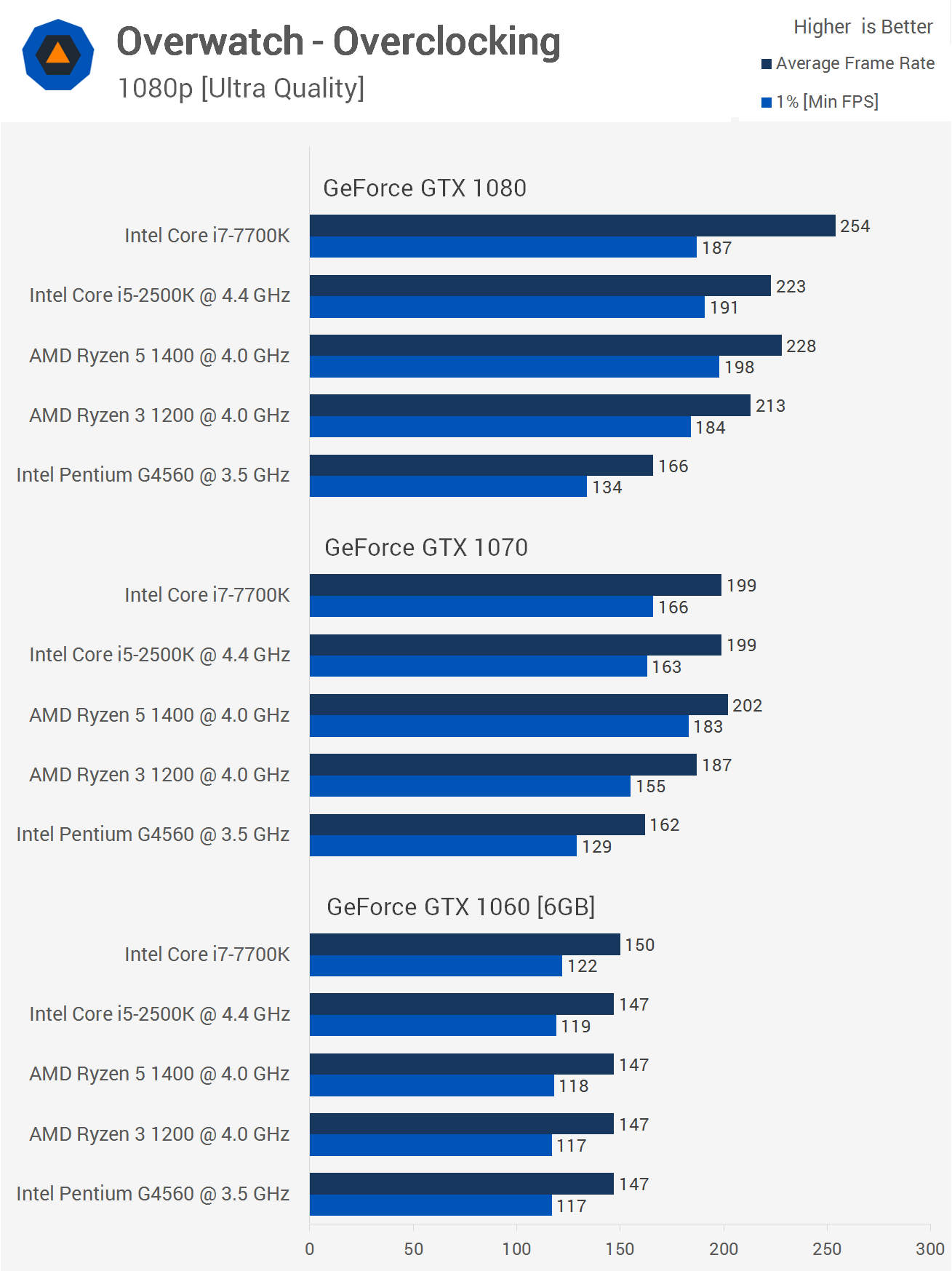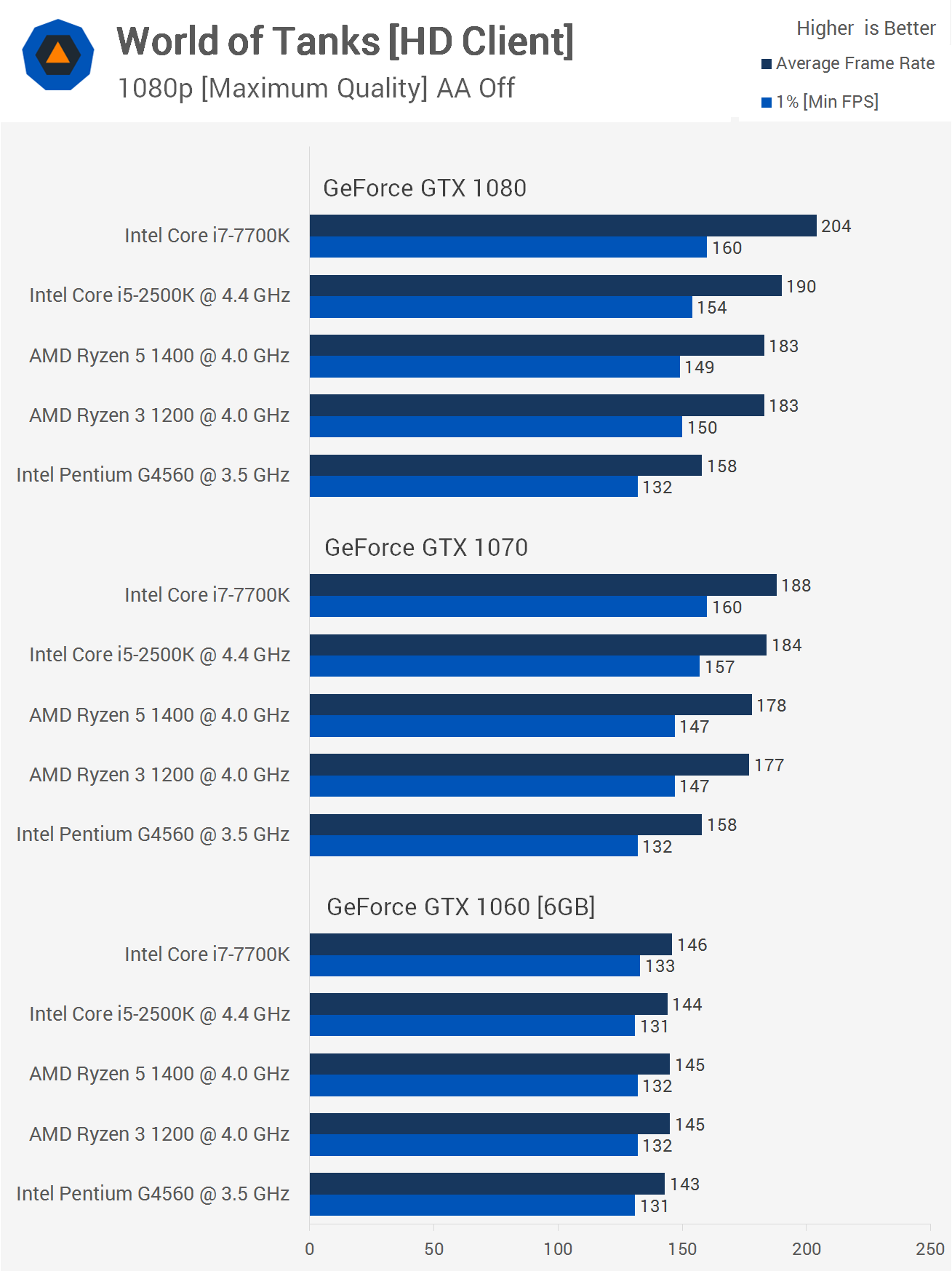Benchmarks: Overclocking

Before wrapping things up, let's see how the Ryzen 3 and 5 CPUs compare to the 7700K once overclocked. The 1300X has been replaced with the overclocked R3 1200 at 4GHz while the Core i5-7400 has been replaced with the Sandy Bridge Core i5-2500K at 4.4GHz.
The Ryzen 5 1400 is now also at 4GHz while the 7700K has been left untouched and of course so too has the locked Pentium G4560.
So looking at Battlefield 1 we are again GPU limited with the GTX 1060 but as we move to the GTX 1070 the midfield looks more competitive. That said, even when overclocked the Ryzen CPUs are still slower than what the Core i5-7400 produced in this particular title.
That said, with the GTX 1080 installed the Ryzen CPUs are now slightly ahead of where the i5-7400 was and they're also not a great deal slower than the 7700K. The R5 1400 for example was just 10% slower which isn't bad given its price.

Here we see when testing with Overwatch that overclocking the Ryzen 5 1400 really helped it close in on the 7700K with the GTX 1070. The quad-core Ryzen 3 still struggles and in fact the overclocked R3 1200 is no faster than the stock R3 1300X and this is down to the fact that XFR is disabled once we overclock.
However, once again we see that the Ryzen CPUs actually do better with the GTX 1080, at least when compared to the stock figures seen previously. The R3 1200 at 4GHz is now 6% faster than the R3 1300X when comparing the 1% low result. Even so, these CPUs are clearly limiting the GTX 1080's performance as the 7700K was able to extract noticeably more frames.

The last game I'm going to look at with the overclocked results is World of Tanks and here the overclocked Ryzen CPUs are able to catch up, though they aren't able to match the stock 7700K. Still, as expected, overclocking the Ryzen 3 and 5 CPUs to 4GHz does reduce the bottleneck but for these older titles they struggle to get the most out of even the GTX 1070.
